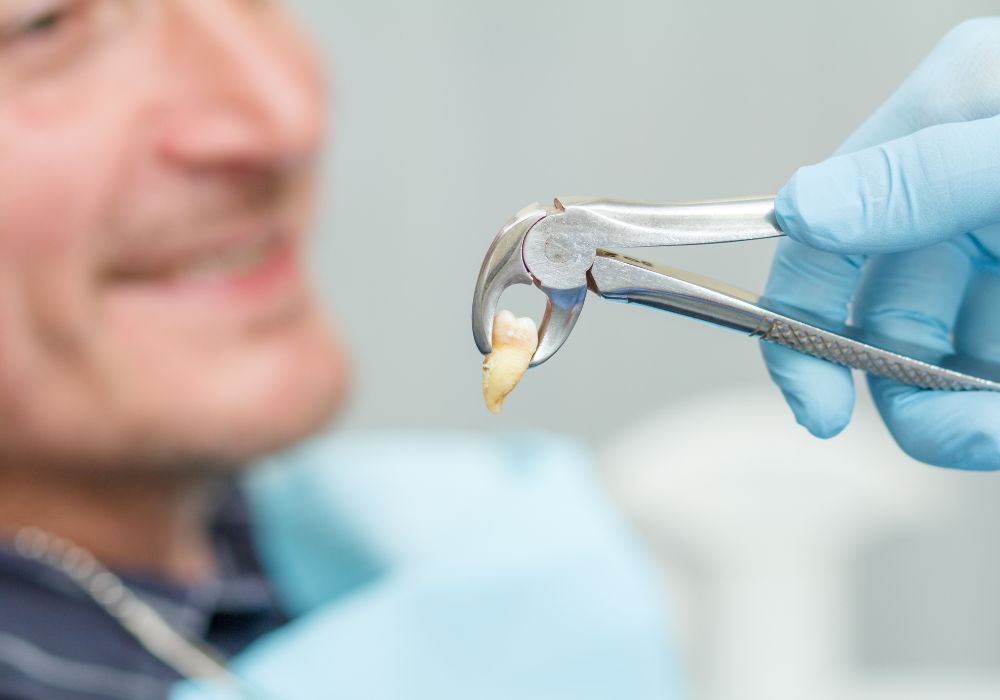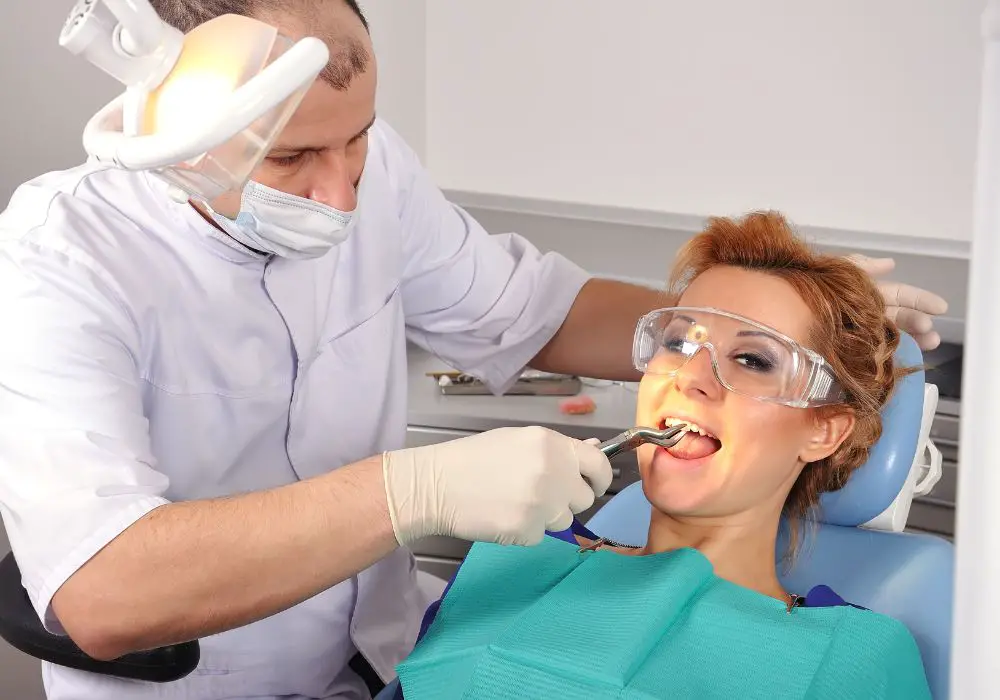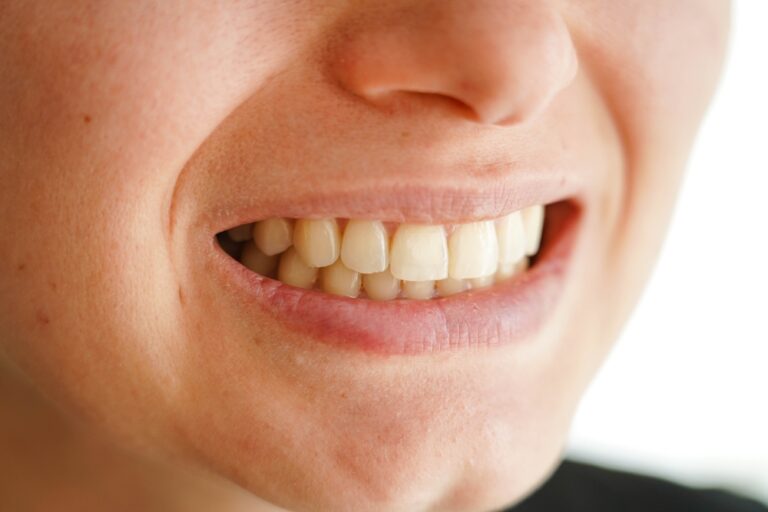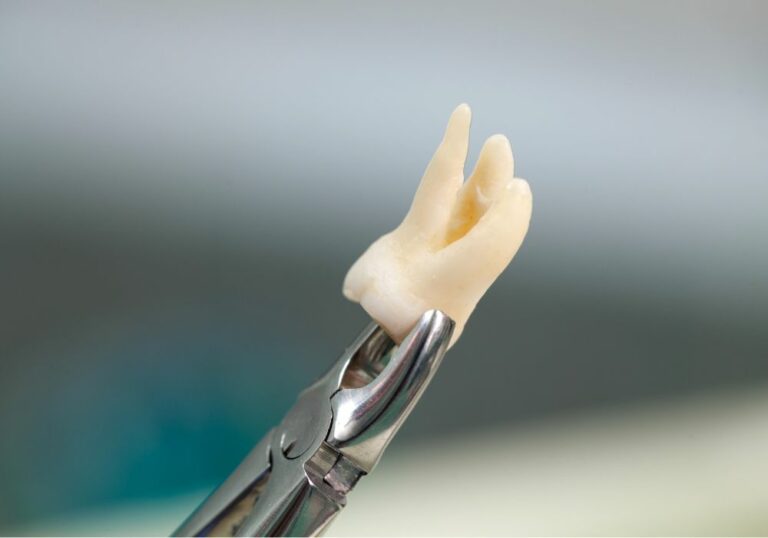Have you recently had your wisdom teeth removed? If so, you may be wondering if it’s okay to be left alone after the procedure. The answer to this question depends on several factors, including the type of anesthesia you received and the extent of the surgery.
If you had local anesthesia and only one or two wisdom teeth removed, you may be able to leave the dental office and go home on your own. However, if you had general anesthesia or multiple teeth removed, it’s best to have someone stay with you for several hours after the procedure. This is because the effects of anesthesia can linger for a while, and you may feel groggy or disoriented.
It’s also important to note that you will need someone to drive you home if you received any form of sedation during the procedure. It’s not safe to operate a vehicle or heavy machinery while under the influence of sedatives. So, if you don’t have someone who can drive you home, you may need to make other arrangements or reschedule your appointment.
Understanding Wisdom Teeth Removal

If you’re experiencing pain or discomfort in the back of your mouth, it could be due to your wisdom teeth. Wisdom teeth are the last set of molars that typically grow in during your late teens or early twenties. While some people have no issues with their wisdom teeth, others experience pain, infection, or other dental problems that require removal.
Wisdom teeth removal is a common oral surgery procedure that involves extracting one or more wisdom teeth. The procedure is typically done under local anesthesia, which means you’ll be awake but won’t feel any pain. In some cases, general anesthesia may be used, which will put you to sleep during the procedure.
After the procedure, you’ll need to take some time to recover. This can take up to a couple of weeks, during which you’ll need to follow some guidelines to ensure a smooth recovery. These guidelines may include:
- Resting for the first few days after the procedure
- Eating soft foods and avoiding hard or crunchy foods
- Using a saltwater rinse to keep your mouth clean
- Applying ice packs to your face to reduce swelling
- Avoiding smoking or using straws, as the sucking motion can dislodge the blood clot and delay healing
It’s important to follow your dentist’s instructions carefully to ensure a successful recovery. If you have any questions or concerns about your wisdom teeth or the removal procedure, don’t hesitate to ask your dentist.
Why Is Post-Surgery Care Important
After wisdom teeth removal, it is important to take care of yourself properly to ensure a smooth and speedy recovery. Post-surgery care is crucial for avoiding complications and reducing discomfort. Here are some reasons why post-surgery care is important:
Preventing Infection
After tooth extraction, the wound is open and can easily become infected. Infection can cause a lot of pain and discomfort, and in severe cases, it can lead to more serious health problems. To prevent infection, it is important to keep the wound clean and avoid touching it with your fingers or tongue.
Reducing Swelling and Pain
Swelling and pain are common after wisdom teeth removal. Proper post-surgery care can help reduce these symptoms and make you more comfortable. Using ice packs, taking pain medication as prescribed, and avoiding strenuous activities can all help reduce swelling and pain.
Promoting Healing
After wisdom teeth removal, your body needs time to heal. Proper post-surgery care can help promote healing and reduce the risk of complications. Following your dentist’s instructions on diet, rest, and oral hygiene can all help promote healing and ensure a speedy recovery.
Avoiding Complications
Complications after wisdom teeth removal are rare but can occur. Proper post-surgery care can help reduce the risk of complications such as dry socket, infection, and excessive bleeding. It is important to follow your dentist’s instructions carefully and report any unusual symptoms or concerns promptly.
Overall, post-surgery care is crucial for a smooth and speedy recovery after wisdom teeth removal. By taking care of yourself properly, you can reduce the risk of complications and ensure a comfortable and successful recovery.
Initial Hours After Surgery

Immediate Post-Removal Care
After your wisdom teeth removal surgery, the first few hours are crucial for your recovery. It’s important to follow your dentist’s instructions carefully to ensure a smooth and speedy recovery. Here are some tips to help you take care of yourself in the immediate hours after surgery:
- Bite down gently on the gauze pad placed over the surgical area to help stop the bleeding. Change the gauze every 30-45 minutes or as needed.
- Apply an ice pack to your cheek for 10-20 minutes at a time to help reduce swelling and discomfort.
- Rest for the remainder of the day, avoiding any strenuous activity.
- Drink plenty of fluids, but avoid using a straw, as the sucking motion can dislodge the blood clot and delay healing.
- Eat soft, cool foods like yogurt, pudding, or applesauce. Avoid hot or spicy foods, as well as crunchy or hard foods that may irritate the surgical site.
Potential Complications
While wisdom teeth removal is a common and generally safe procedure, there are some potential complications to be aware of. These may include:
- Bleeding: Some bleeding is normal in the first few hours after surgery, but if it persists or becomes heavy, contact your dentist immediately.
- Infection: Signs of infection may include fever, pain, swelling, or discharge from the surgical site. Contact your dentist if you experience any of these symptoms.
- Dry socket: This occurs when the blood clot that forms over the surgical site becomes dislodged or dissolves, leaving the bone exposed and causing intense pain. Your dentist can provide treatment to alleviate the symptoms of dry socket.
By taking proper care of yourself in the immediate hours after your wisdom teeth removal, you can help prevent complications and ensure a smooth recovery.
The First Few Days
After getting your wisdom teeth removed, it’s important to take care of yourself during the first few days of recovery. Here are some tips to help you manage pain, adjust your diet, and maintain good oral hygiene.
Pain Management
It’s normal to experience some pain and discomfort after your wisdom teeth removal. To manage the pain, your dentist may prescribe pain medication or recommend over-the-counter pain relievers like ibuprofen. Be sure to follow the dosage instructions carefully and don’t take more than recommended.
In addition to medication, you can also use ice packs to reduce swelling and numb the area. Apply an ice pack to your cheeks for 10-20 minutes at a time, with breaks in between. You can also use a warm compress to help with soreness and stiffness.
Dietary Adjustments
For the first few days after your surgery, stick to soft and cool foods like pudding, yogurt, and ice cream. Avoid hot, spicy, and crunchy foods that can irritate the extraction site. You should also avoid using straws, as the sucking motion can dislodge the blood clot and delay healing.
As you start to feel better, you can gradually introduce more solid foods into your diet. Just be sure to chew carefully and avoid biting down directly on the extraction site.
Oral Hygiene Practices
Good oral hygiene is essential for a speedy recovery after wisdom teeth removal. However, you should avoid brushing your teeth for the first 24 hours after surgery to allow the blood clot to form. After that, you can gently brush your teeth and rinse your mouth with salt water to keep the area clean.
Avoid using mouthwash or toothpaste that contains alcohol, as it can irritate the extraction site. You should also avoid smoking, as it can delay healing and increase the risk of infection.
By following these tips, you can help ensure a smooth and comfortable recovery after your wisdom teeth removal.
When to Leave Someone Alone
After wisdom teeth removal, it’s important to take care of yourself and allow your body to heal properly. You may feel groggy and disoriented from the anesthesia, and your mouth may be sore and swollen. It’s important to have someone with you for the first 24 hours after surgery to help you get home safely and provide any necessary assistance. But when is it appropriate to leave someone alone after wisdom teeth removal?
Here are some guidelines to help you determine when it’s safe to be on your own:
- If you had a local anesthetic and are feeling alert and coherent, you may be able to drive yourself home after surgery. However, it’s always best to have someone with you in case you experience any unexpected side effects.
- If you had a general anesthetic or sedation, you will need someone to drive you home and stay with you for at least a few hours after surgery. You may feel drowsy and disoriented for several hours, and it’s important to have someone nearby in case you need assistance.
- If you are taking prescription pain medication, you should not drive or operate heavy machinery until you are no longer taking the medication. This can take several days, depending on the type and dosage of medication you were prescribed.
- If you are experiencing significant pain or swelling, you may need someone to stay with you for a longer period of time. You may also need assistance with tasks like preparing meals or running errands.
In general, it’s best to err on the side of caution and have someone with you for at least the first 24 hours after surgery. If you are feeling well and are able to care for yourself, you may be able to be on your own after that. However, if you have any concerns about your ability to care for yourself or are experiencing unexpected side effects, it’s always best to have someone nearby who can help.
The Role of Emotional Support

After wisdom teeth removal, you may feel anxious, scared, or stressed. Emotional support from your loved ones can help you feel better and speed up your recovery. Here are some ways emotional support can help you recover faster:
- Reduced stress levels: Emotional support can help you feel more relaxed and reduce your stress levels. When you’re less stressed, your body can focus on healing and recovering faster.
- Improved mood: Having someone to talk to and share your feelings with can improve your mood and make you feel more positive about your recovery.
- Better adherence to aftercare instructions: When you have emotional support, you’re more likely to follow your aftercare instructions, such as resting, eating soft foods, and using a saltwater rinse. This can help you recover faster and avoid complications.
- Faster healing: Emotional support can help you feel more relaxed, which can boost your immune system and speed up your healing process.
It’s important to have someone who can provide emotional support during your recovery. This can be a family member, friend, or partner. They can help you with practical tasks, such as cooking, cleaning, and running errands, as well as provide emotional support and companionship.
If you don’t have anyone who can provide emotional support, consider joining a support group or seeking professional help from a therapist. Your dentist or oral surgeon may also be able to provide you with resources and referrals for emotional support.
When to Seek Medical Help
While wisdom teeth removal is a common procedure, there are some instances where you may need to seek medical help. Here are some signs that you should contact your dentist or oral surgeon:
Excessive Bleeding
It’s normal to experience some bleeding after wisdom teeth removal, but if the bleeding is excessive or doesn’t stop after applying pressure, you should seek medical help immediately. Your dentist or oral surgeon may need to apply additional stitches or take other measures to stop the bleeding.
Severe Pain or Swelling
Some pain and swelling are to be expected after wisdom teeth removal, but if the pain is severe or the swelling doesn’t go down after a few days, you should contact your dentist or oral surgeon. They may prescribe pain medication or recommend other treatments to help manage your symptoms.
Signs of Infection
If you notice any signs of infection, such as fever, pus, or a foul taste in your mouth, you should seek medical help immediately. Infections can be serious and may require antibiotics or other treatments to prevent complications.
Difficulty Breathing or Swallowing
While rare, difficulty breathing or swallowing can occur after wisdom teeth removal. If you experience these symptoms, you should seek medical help immediately. Your dentist or oral surgeon may need to take measures to ensure your airway is clear and that you can breathe comfortably.
Remember, if you have any concerns or questions after your wisdom teeth removal, don’t hesitate to contact your dentist or oral surgeon. They are there to help you through the recovery process and ensure your oral health is protected.
Long-Term Recovery
After the initial recovery period of 3-14 days, you may still experience some discomfort or pain, but it should gradually decrease over time. Here are some tips to help you manage your long-term recovery:
- Follow your dentist’s instructions: Continue to follow any post-surgery instructions given to you by your dentist or oral surgeon. This may include taking medication, using ice packs, or avoiding certain foods or activities.
- Maintain good oral hygiene: Brush your teeth gently and avoid the surgical site, but continue to floss and rinse your mouth with saltwater to keep the area clean.
- Watch for signs of infection: If you experience fever, severe pain, or swelling that doesn’t go away, contact your dentist or oral surgeon immediately.
- Eat a soft diet: Continue to eat soft foods for the first few weeks after surgery. Avoid hard, crunchy, or sticky foods that could irritate the surgical site.
- Be patient: It may take several weeks or even months for your mouth to fully heal. Don’t rush the process and be patient with yourself.
By following these tips and taking care of yourself, you can ensure a smooth and successful long-term recovery after wisdom teeth removal.
Frequently Asked Questions
How long does it take to recover from wisdom teeth removal?
Recovery time after wisdom teeth removal can vary depending on factors such as age and if any teeth were impacted. Typically, it takes between 3 days and 2 weeks to fully recover. During this time, it is important to rest and avoid strenuous activities.
What are the aftercare instructions for wisdom teeth removal?
After wisdom teeth removal, it is important to follow your dentist’s aftercare instructions to promote healing and prevent complications. These instructions may include using ice packs to reduce swelling, taking prescribed pain medication, eating soft foods, and avoiding smoking and alcohol.
Can I drive myself home after wisdom teeth removal?
It is not recommended to drive yourself home after wisdom teeth removal, as the anesthesia and pain medication can impair your ability to operate a vehicle safely. It is best to arrange for a friend or family member to drive you home.
Is it normal to have swelling after wisdom teeth removal?
Yes, it is normal to experience swelling after wisdom teeth removal. This is a natural response to the trauma of the surgery and should subside within a few days. Using ice packs and following your dentist’s aftercare instructions can help reduce swelling.
What foods should I avoid after wisdom teeth removal?
After wisdom teeth removal, it is recommended to avoid hard, crunchy, or sticky foods that can irritate the surgical site. Instead, stick to soft foods such as soup, mashed potatoes, and yogurt. It is also important to avoid using a straw, as the suction can dislodge the blood clot and delay healing.
When can I start brushing my teeth after wisdom teeth removal?
It is important to maintain good oral hygiene after wisdom teeth removal, but it is recommended to wait at least 24 hours before brushing your teeth. After that, you can gently brush your teeth and avoid the surgical site. Your dentist may also recommend using a saltwater rinse to promote healing.






